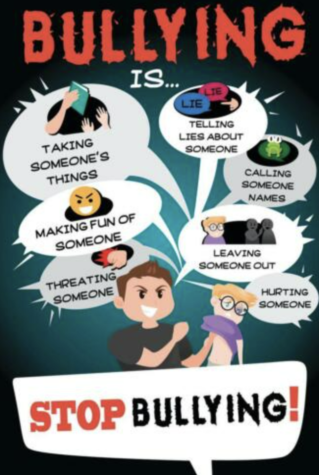Dealing with Bullies
Being bullied is like a cat taunting a mouse. The tormentor tends to come back almost every day, usually when no one’s really watching, like in an empty hallway, the bathroom, or classroom towards the end of the period. They mayBullying deeply affects teens’ mental health. Their self-esteem drops, many go through depression, struggle to focus in class, and try to avoid even being at school.
Due to fear of retaliation or judgement, teens rarely speak up to their bullies or want tell adults. If that is too hard, they do have more choices. Bullies want a reaction, so try to not give them what they want. Also, bullying them back simply makes two bullies. Instead, tell a close friend who could help find a solution on how to make the situation better.
Often, people witness others getting bullied physically or verbally but don’t help at all. They just remain bystanders. There are ways to help. First, be an upstander, not a bystander! Do something instead of just staring, watching, or even recording it. If it’s safe, calmly speak up and try to stop the harassment right then. Otherwise, offer support to the person being bullied. Listen to the story and offer to help make a plan. Talk to a trusted adult like a family member, teacher, or counselor. Let’s stomp out bullying.








